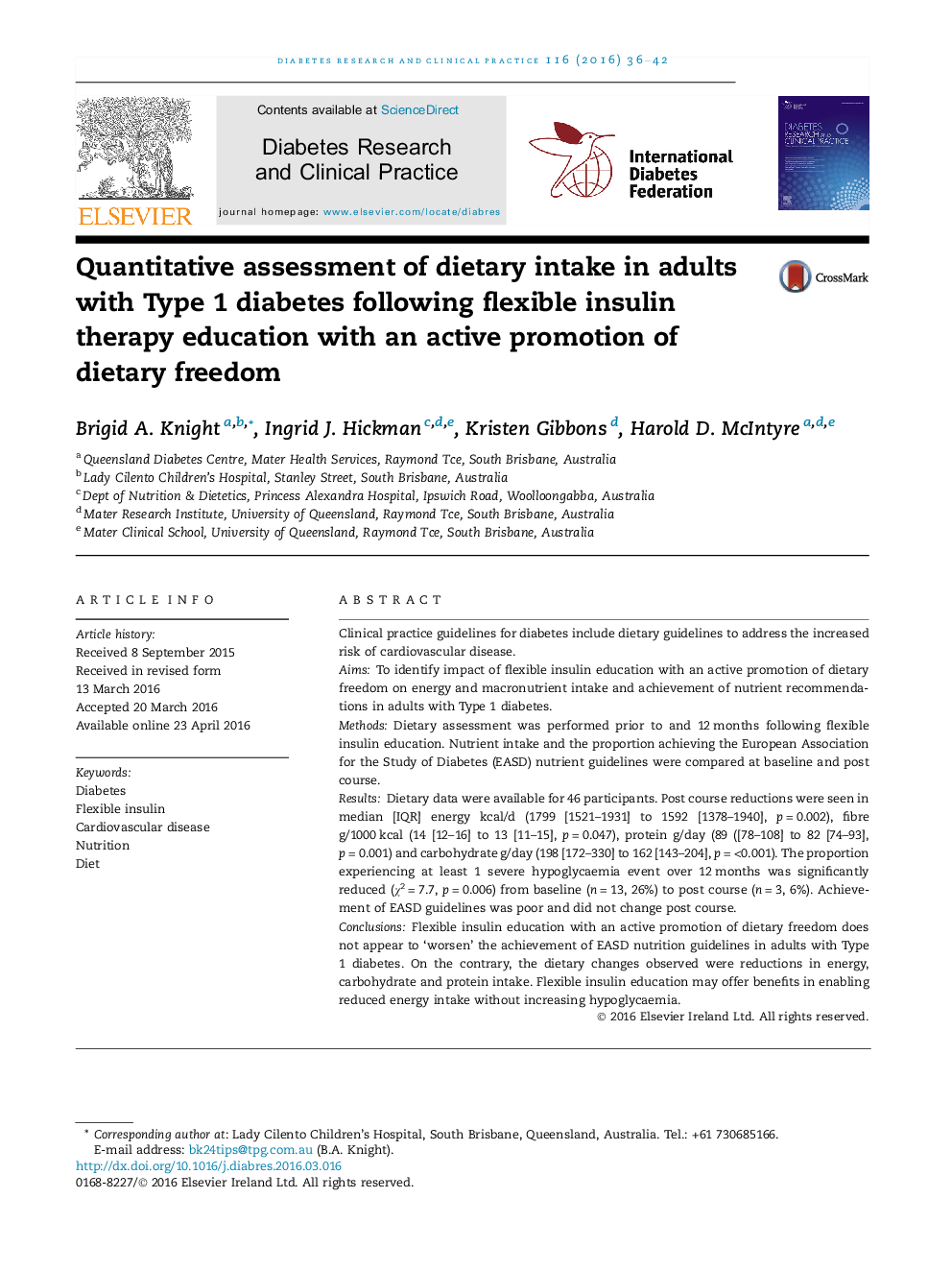| کد مقاله | کد نشریه | سال انتشار | مقاله انگلیسی | نسخه تمام متن |
|---|---|---|---|---|
| 5898951 | 1568799 | 2016 | 7 صفحه PDF | دانلود رایگان |
Clinical practice guidelines for diabetes include dietary guidelines to address the increased risk of cardiovascular disease.AimsTo identify impact of flexible insulin education with an active promotion of dietary freedom on energy and macronutrient intake and achievement of nutrient recommendations in adults with Type 1 diabetes.MethodsDietary assessment was performed prior to and 12 months following flexible insulin education. Nutrient intake and the proportion achieving the European Association for the Study of Diabetes (EASD) nutrient guidelines were compared at baseline and post course.ResultsDietary data were available for 46 participants. Post course reductions were seen in median [IQR] energy kcal/d (1799 [1521-1931] to 1592 [1378-1940], p = 0.002), fibre g/1000 kcal (14 [12-16] to 13 [11-15], p = 0.047), protein g/day (89 ([78-108] to 82 [74-93], p = 0.001) and carbohydrate g/day (198 [172-330] to 162 [143-204], p = <0.001). The proportion experiencing at least 1 severe hypoglycaemia event over 12 months was significantly reduced (Ï2 = 7.7, p = 0.006) from baseline (n = 13, 26%) to post course (n = 3, 6%). Achievement of EASD guidelines was poor and did not change post course.ConclusionsFlexible insulin education with an active promotion of dietary freedom does not appear to 'worsen' the achievement of EASD nutrition guidelines in adults with Type 1 diabetes. On the contrary, the dietary changes observed were reductions in energy, carbohydrate and protein intake. Flexible insulin education may offer benefits in enabling reduced energy intake without increasing hypoglycaemia.
Journal: Diabetes Research and Clinical Practice - Volume 116, June 2016, Pages 36-42
